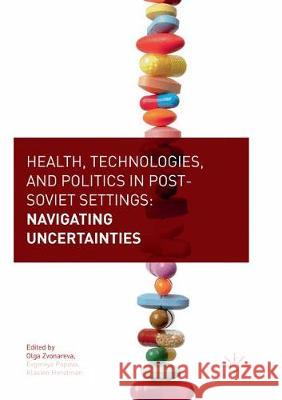Health, Technologies, and Politics in Post-Soviet Settings: Navigating Uncertainties » książka
topmenu
Health, Technologies, and Politics in Post-Soviet Settings: Navigating Uncertainties
ISBN-13: 9783319877358 / Angielski / Miękka / 2018 / 268 str.
Kategorie:
Kategorie BISAC:
Wydawca:
Palgrave MacMillan
Język:
Angielski
ISBN-13:
9783319877358
Rok wydania:
2018
Wydanie:
Softcover Repri
Ilość stron:
268
Oprawa:
Miękka
Wolumenów:
01











